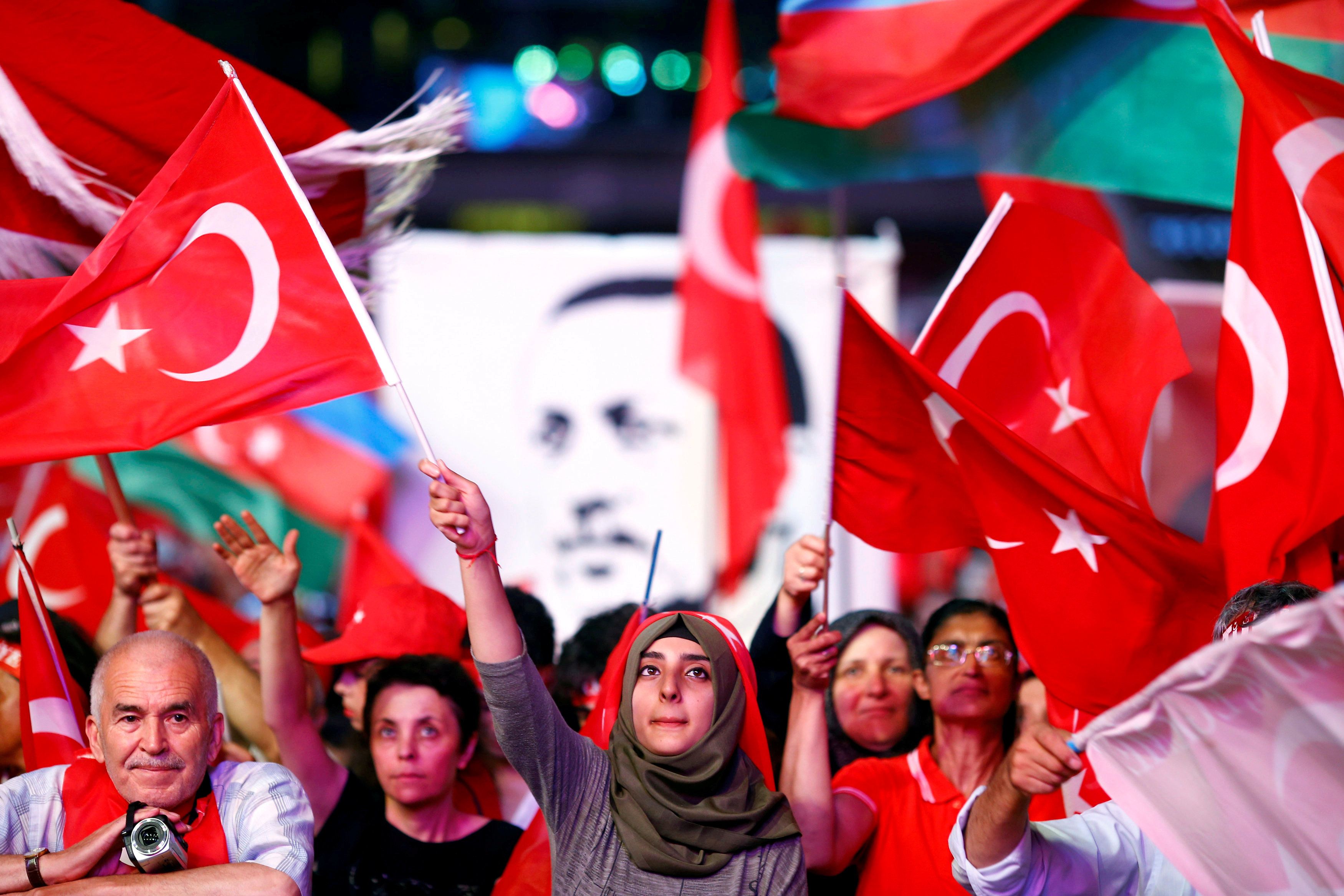July 20, 2018
On Thursday, the Turkish government lifted a state of emergency that has been in force for two years. First imposed after a failed coup against President Erdogan’s government back in 2016, the measure has facilitated the arrest or purge of roughly a quarter of a million state officials.
But if Erdogan is comfortable letting the emergency law go, it’s because conventional laws now give him all the clout he needs. Having narrowly won re-election last month, he takes office with vastly expanded new powers to appoint officials in the government, judiciary, military, central bank, universities, and even at the local level, all with little parliamentary oversight. A tough new anti-terrorism law will grant him additional tools to silence or sideline his opponents.
One of Erdogan’s first moves after being sworn in for his second term was to put his 40-year-old son-in-law Berat Albayrak in charge as treasury and finance minister, a position of immense influence over Turkey’s economy.
There are two big questions surrounding Albayrak. First, although he has a background in business and an MBA from a US university, there’s little to suggest that he’ll push back against his headstrong father-in-law’s increasingly ruinous economic policy. To keep his base happy, Erdogan has flooded the country with government cash and kept interest rates artificially low. While that approach worked for a time, international investors whose support helps to keep the debt-ridden economy afloat are increasingly spooked. With crucial municipal elections set for next spring, it’s hard to see Erdogan changing course, and even harder to see Albayrak pushing back – his appointment alone caused the lira to shed 3.5% of its value against the dollar, its biggest one-day slide in two years.
The second question is a broader one: is Erdogan, who has elevated Albayrak with stunning speed over the past several years, grooming a successor? One of the challenges of strongman politics, after all, is that after concentrating so much power in the presidency, you want to be sure that the next guy doesn’t turn around and use it against you. (In 1999, for example, a sickly Boris Yeltsin shrewdly entrusted the vast legal powers of his office to a young ex-spy known for his loyalty, if not for his scruples.) While the 64-year-old Erdogan can still legally serve at least 10 more years, it’s never too early for the aging authoritarian retirement plan to kick in.
More For You
- YouTube
On Ask Ian, Ian Bremmer breaks down the steady escalation of US pressure on Venezuela and why direct military action is now a real possibility.
Most Popular
Global conflict was at a record high in 2025, will 2026 be more peaceful? Ian Bremmer talks with CNN’s Clarissa Ward and Comfort Ero of the International Crisis Group on the GZERO World Podcast.
- YouTube
On Ian Explains, Ian Bremmer takes a look at the growing surge in global conflict and the ripple effects of so much violence, war, and armed struggle throughout the world.
Immigration and Customs Enforcement (ICE) agents check the identity documents of a group of agricultural workers at a grocery store parking lot during an immigration raid in Mecca, California, U.S. December 19, 2025.
REUTERS/Daniel Cole
A year into US President Donald Trump’s second term, America’s immigration policy has undergone one of its most sweeping resets in decades.
© 2025 GZERO Media. All Rights Reserved | A Eurasia Group media company.
